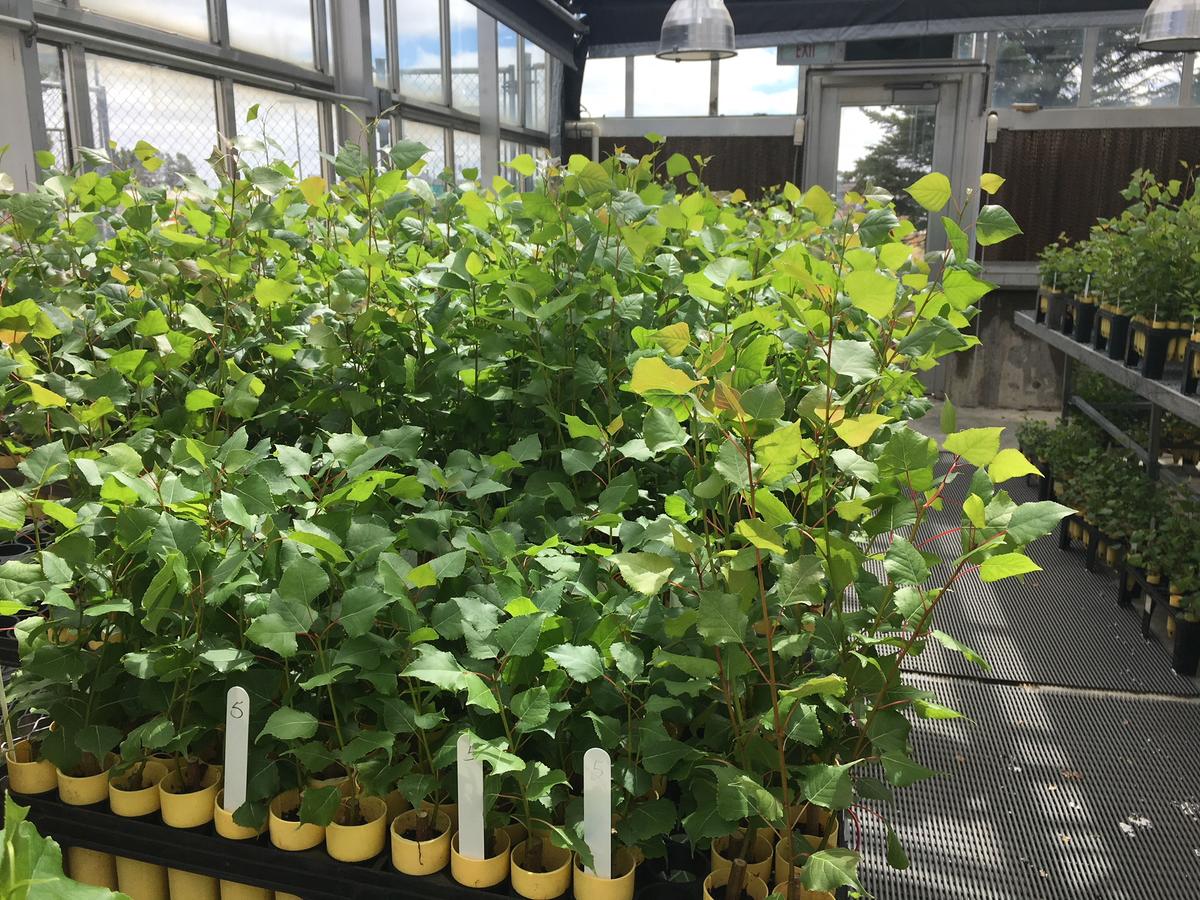Is there a future that turns to trees for plastic alternatives and chemicals? And if so, how can we meet the demand?
For the past 25 years, NRRI tree breeder Bernie McMahon has been clipping shoots off trees that are a cross between native eastern cottonwood and European black poplar and planting those sticks in soil. By taking from the best of the best -- fast-growing and disease resistant -- and then nurturing along many generations, NRRI has developed trees they’re calling “geo-robust.” The program is now poised to be a tree breeding and selection center for much of the Midwest.
The vision is that future demand for more biomass can be met with short rotation tree crops, grown for specific industrial needs. There are traditional markets like pulp and paper. But there’s also increasing demand for trees to sequester carbon, remove contaminants from soil, wastewater or treated sewage sludge, or used as a feedstock for green chemicals and non-food-group fuels.
“We know there’s not a big market now, but our job is to look ahead and be ready for the economy of the future,” said Neil Nelson, NRRI special projects manager. “Biodegradable plastics from a renewable source has tremendous market potential.” Nelson developed the analytical method to identify the geo-robust trees.
What makes these “geo-robust” hybrids extra special is that they can grow across many climate zones, from upstate New York to southern Indiana to northern Minnesota. That means those other regions won’t have to spend 25 years – as NRRI did – developing a hybrid specific to their region, which will save a tremendous amount of time and money.
"From the time of pollination in the greenhouse to clonal selection, it takes 10 to 12 years," McMahon explained. "Compared with the development of corn or apples, that's not very fast, but a typical aspen rotation is up to 40 years, so our hybrids are very promising.”
NRRI expanded the field trials to four states with collaborators from Purdue University, Michigan State University, SUNY College of Environmental Science and Forestry and Cornell University.
“Our goal is that commercial nurseries can buy the license to sell cuttings of our trees to industrial companies and landowners who want a low-impact crop to sell to the emerging markets,” said Nelson.
NRRI is seeking patents on its elite hybrid poplar trees. The new trees will be available after patents are filed and private nurseries are licensed to produce planting material. This research is funded by the State of Minnesota, U.S. Department of Energy and USDA National Institute of Food and Agriculture.
Watch a video of NRRI’s Poplar Program Team in the field describing their work.
